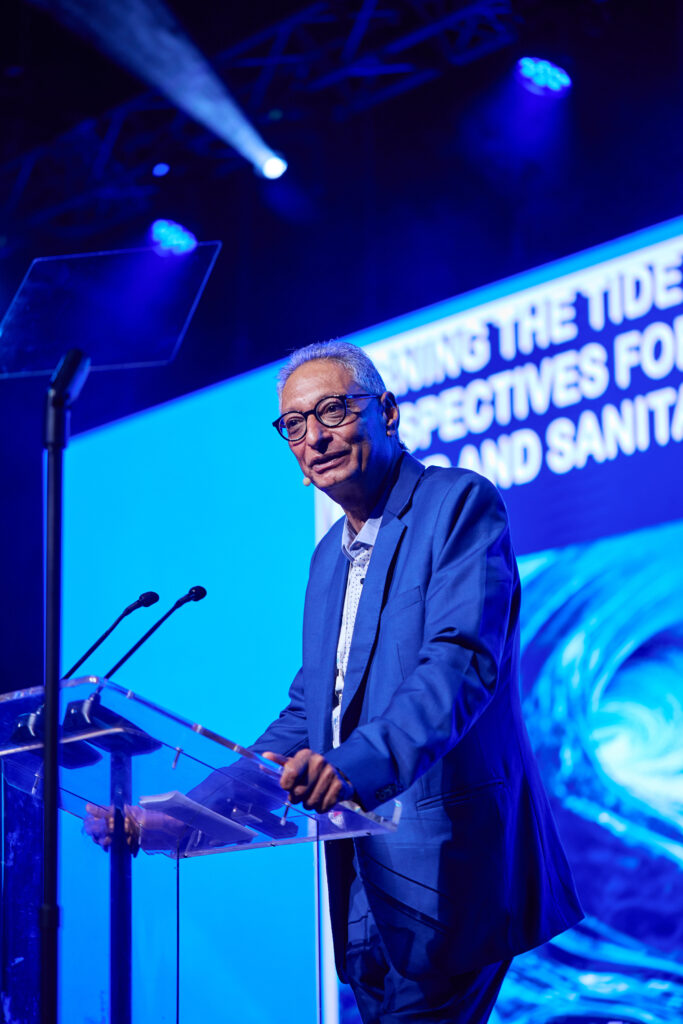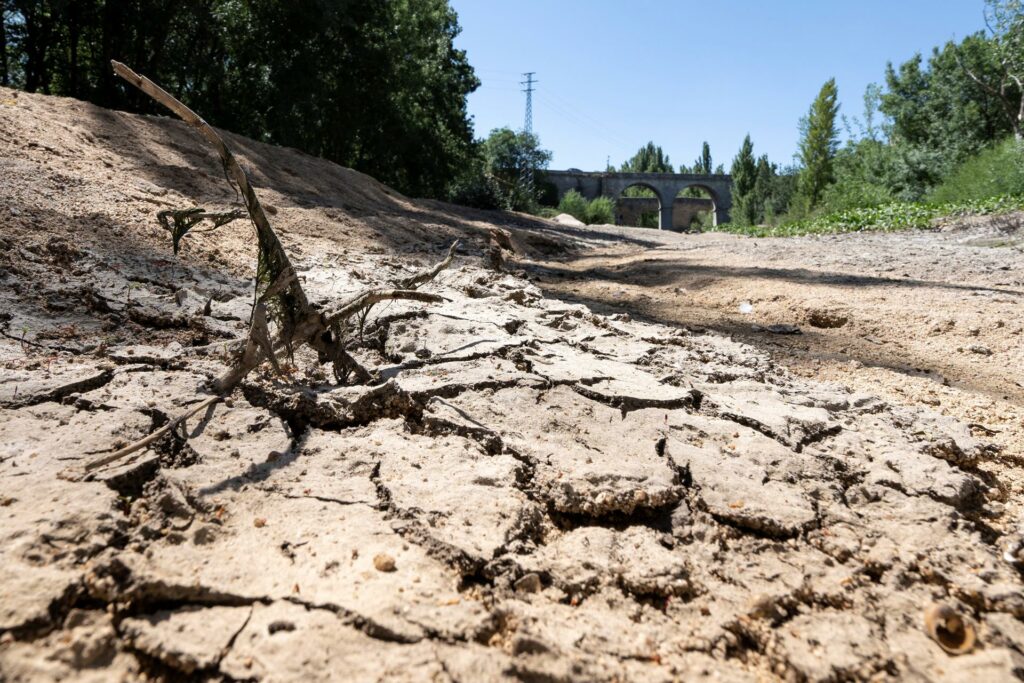Professor Hamanth Kasan, president-elect of the International Water Association (IWA) opened the #WISA2024 conference with a keynote speech titled, “Turning the Tide: Global perspectives for sustainable water and sanitation services delivery” highlighting how South Africa can use international best practice to achieve its water goals.
Prof Kasan is a long-standing member and Senior Fellow of WISA and has been actively engaged in the water and sanitation sector for the past thirty-five years, locally, continentally and globally. He has acquired a unique blend of skills, knowledge and expertise. His qualifications are in science, engineering, management, leadership and corporate governance. He spent ten years in the academic sector and twenty-two years at Africa’s largest water utility, Rand Water, as General Manager of Scientific Services. He is the first person of colour to be made president-elect of the IWA.
The state of things
His keynote speech opens with a sombre reflection, “I was at a European water conference titled “Riding the Wave” and now I sit in my home country at a water conference titled “Turn the Tide” and I have to ask how to go from turning the tide to rising the wave.” The numbers can be grim, 2.2 billion people are without access to clean drinking water, and 3.6 billion don’t have access to safely managed sanitation. “These numbers have remained this high throughout my entire career, and we have to really look at ourselves as water professionals to find tangible solutions.” Of 113 countries that are monitoring SDG goals only 16 are on track to meet their goals. Africa is expected to have the highest rate of urbanisation in history and coupling this with climate change the continent has serious challenges ahead.The #WISA2024 conference is themed around “turning the tide” and Prof Kasan suggests that “we already know our problems, as a country we need to look towards the global research and see what the facts have to say about the solutions.” He says that we need to move beyond excuses and take stock of where we are and how to best move forward.
Moving beyond the state of things
He identifies eight findings from global best practices that are indicative of a functioning water sector.- Political will and corruption: Water is essential for life but without the political will to deliver this vital resource the sentiment becomes void of meaning.on this note, Prof Kasan adds that “this means fighting corruption, as we all know a fish rots from the head.”
- Governance, policy and enforcement: The need for transparent and accountable governance cannot be overstated in achieving a better water sector. Along with these attributes Prof Kasan says, “We need good policy and South Africa has good policy but we need to enforce it. No enforcement is as good as no policy.”
- Leadership, culture and skills: Without leadership that ensures compliance and steers towards good achievable goals the entire sector could be aimless. Encouraging a culture of pride and hard work in the various institutions is also essential for a thriving water sector, he quips, “Good culture eats strategy for breakfast” which is to say that strategy is important but without a culture to drive it, strategy remains impotent.
- Risk management: Riska management as it stands gets things in done just in time, and always plays catch-up. We need to move to a culture of mitigating the risk. It isn’t enough just to know the risks, like climate change and rapid urbanisation, we need action, we need to build redundancy not “just enough” we need to build with spare capacity.
- Technology: “Technology is often praised as the silver bullet, but we need to remember it is not a one-size-fits-all fix.” South Africa needs to be honest and clear about the tech we need and we need to adapt to our own unique challenges.
- Enabling partnerships: Collaborative approaches work, and ensuring that partnerships ar useful and strategic can really help push the sector to greater heights.
- Customer orientated: Above the boards, above the departments, and various bodies and institutions sits the customer. The actual consumer of water should be the focus at all times, this is in effect who the sector works for.
- Independent regulation: The sector cannot be tasked with implementation and checking its own implementation. The research shows that independent regulation is a key force behind protecting the consumer, and ensuring compliance across the sector. “It is not all good, we can learn from the poorly implemented independent regulation like in the UK, as well as learn from the successes to ensure a best practice approach in South Africa.”







